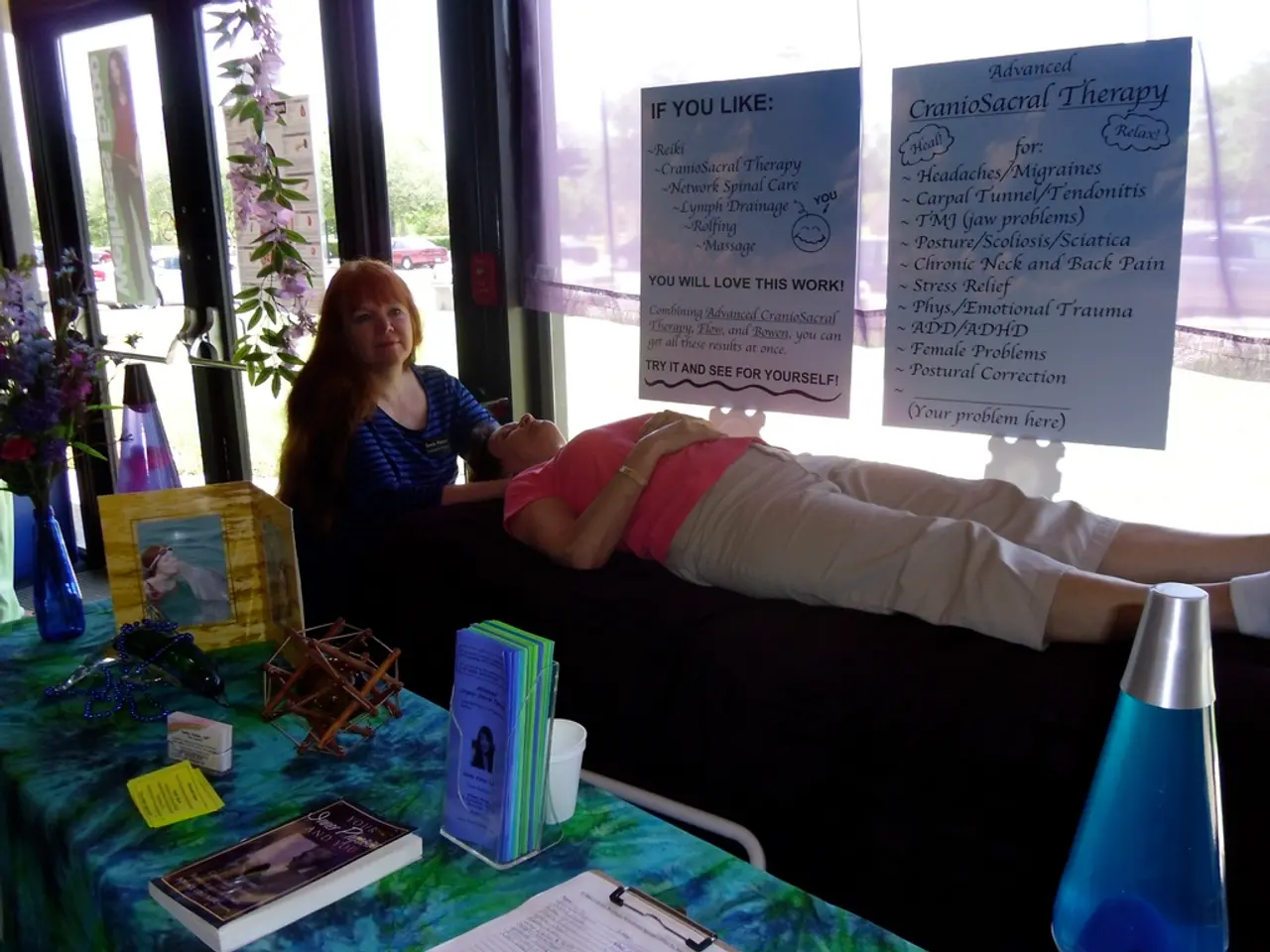Alternative methods for managing ankylosing spondylitis using natural remedies
Alleviating Symptoms of Ankylosing Spondylitis with Natural Therapies
Ankylosing spondylitis (AS) is a chronic inflammatory condition that primarily affects the spine and other joints within the body. While natural treatments cannot cure or slow the progression of AS, they can provide symptomatic relief and improve quality of life.
Key Natural Therapies and Their Effects
- Stretching and exercise: Daily spine or lower back stretches can help improve flexibility, reduce pain, and stiffness in individuals with AS.
- Heat therapy: Applying warmth, such as heating pads or warm baths, can help reduce muscle stiffness and pain, particularly before exercise. However, certain conditions (e.g., vascular disease) may require consultation before use.
- Cold therapy: Ice packs or cold gels can help reduce joint swelling and inflammation, especially post-exercise.
- Acupuncture: This therapy involves needle stimulation to activate the body’s pain-relieving hormones. It is generally safe, and some studies suggest it reduces pain, though specific evidence for AS remains inconclusive.
- Massage therapy: This can improve circulation, reduce muscle tension, and support relaxation, potentially easing joint discomfort.
Other approaches such as yoga, hydrotherapy, Varmam therapy, and homeopathy are also used. For example, Varmam manipulation demonstrated symptom improvement in lumbar spondylosis, a related spinal condition, but requires more rigorous clinical trials. Homeopathy claims symptom relief and slowing progression by reducing inflammation and improving blood circulation, though such evidence is primarily anecdotal and patient-reported.
Effectiveness Compared to Medical Treatments
Natural therapies mainly provide symptomatic relief and are often recommended in conjunction with conventional medical treatments to enhance quality of life. Conventional treatments for AS include nonsteroidal anti-inflammatory drugs (NSAIDs), biologics, physical therapy, and sometimes surgery. These target disease inflammation and progression more effectively and are medically validated through extensive clinical research. Natural therapies lack rigorous clinical trial evidence as standalone treatments.
Lifestyle Recommendations
The Spondylitis Association of America (SAA) provides dietary guidelines for people with AS, including limiting alcohol, fat, salt, and sugar, eating plenty of fresh fruits and vegetables, getting adequate amounts of calcium and vitamin D, taking a multivitamin as needed, asking a doctor which foods to eat to counteract any nutritional side effects of medication, drinking eight to 10 glasses of water per day, and avoiding fried, spicy, or citrus foods before going to bed to help prevent heartburn.
The SAA also provides recommendations to help improve sleep quality in people with AS, including selecting a comfortable mattress, ensuring a cool, dark, and quiet sleep environment, using an ambient noise machine, developing a relaxing bedtime routine, avoiding caffeine and heartburn-inducing foods before going to bed, performing regular exercise, not napping during the day, and avoiding alcohol.
Conclusion
Natural therapies are recommended as complementary approaches that may alleviate AS symptoms and improve quality of life but are generally not substitutes for medical treatments targeting the underlying disease process. Their effectiveness compared to pharmaceutical or biologic therapies is limited and less well documented, making combination approaches the best current practice.
- Beyond the primary natural therapies mentioned, entities like yoga, hydrotherapy, Varmam therapy, and homeopathy may offer additional symptomatic relief for individuals living with ankylosing spondylitis.
- Research on Varmam therapy for ankylosing spondylitis is sparse and requires further rigorous clinical trials to confirm its efficacy.
- Homeopathy claims to provide symptom relief and slow progression of ankylosing spondylitis, though strong evidence for these claims remains primarily anecdotal and patient-reported.
- Along with natural therapies, people living with ankylosing spondylitis should consider a balanced lifestyle for overall health and wellness.
- The Spondylitis Association of America recommends a diet rich in fresh fruits and vegetables, low in fat, salt, and sugar, while also getting the recommended amounts of calcium and vitamin D to support a person's health and wellbeing.
- Adequate hydration is crucial for individuals with ankylosing spondylitis, as they should drink 8-10 glasses of water per day.
- Knowing how certain foods can interact with medications is essential, so it's best to consult a doctor if unsure about dietary choices.
- By adopting good sleeping habits, such as creating a comfortable sleep environment, establishing a relaxing bedtime routine, and avoiding foods that induce heartburn, people with ankylosing spondylitis can improve their sleep quality and overall health.
- Lifestyle recommendations and natural therapies do not replace medical treatments but provide complementary approaches to alleviate ankylosing spondylitis symptoms and improve quality of life.




